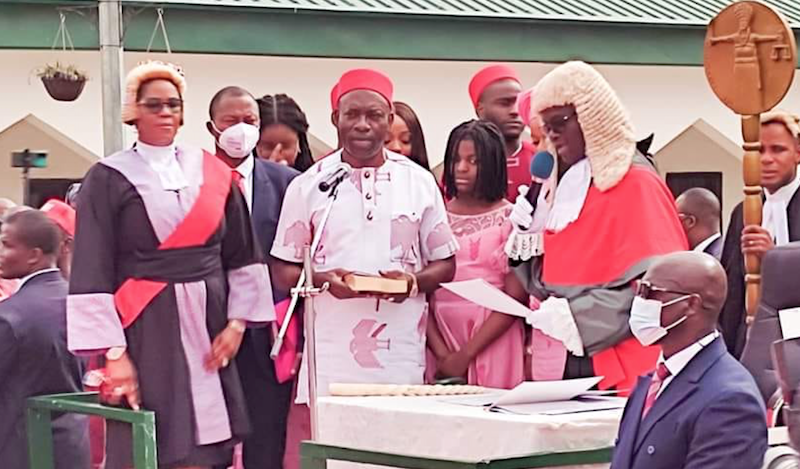Sen. Uche Ekwunife, representing Anambra Central in the Senate, has expressed optimism that Prof. Charles Soludo’s administration will herald economic development in Anambra.
Ekwunife, in a statement on Thursday in Awka, urged the governor to employ a transparent, accountable, gender-inclusive and people-centered governance.
She also urged Soludo to restore law and order by prioritising the security of lives and property of the people of state.
According to her, security of lives and property remains the primary responsibility of every responsible government.
“Earlier today, I witnessed the inauguration of Prof. Charles Soludo, as the Governor of Anambra State. The inauguration signified a remarkable day in the history of the state.
“I’m hopeful that Soludo’s administration will herald economic development in all the sectors of governance in the state.
“I urge the new governor to employ a transparent, accountable, gender-inclusive and people-centred governance.
“I remind him to restore law and order by prioritising the security of lives and property of the people of state which remains the primary responsibility of every responsible government,” she said.
Ekwunife also urged religious, traditional, political leaders and other stakeholders, irrespective of party affiliation to rally round the governor.
She said there was the need to rally round Gov. Soludo to actualise the vision, goals and dreams of the state’s founding fathers, as the Light of the Nation.
Ekwunife congratulated the deputy governor, Dr Onyedikachi Ibezim, and enjoined him to work together with the governor for the greater good of the state.
“I pray that God give Prof. Soludo the wisdom and knowledge to pilot the affairs of our dear state. May his administration be successful. Amen,” she said.

